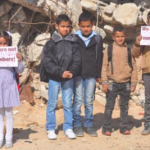
The United Nations Convention on the Rights of the Child (UNCRC) is a legally-binding international agreement setting out the civil, political, economic, social and cultural rights of every child, regardless of their race, religion or abilities.
The Convention consists of 54 articles that set out children’s rights and how governments should work together to make them available to all children.
Under the terms of the convention, governments are required to meet children’s basic needs and help them reach their full potential. Central to this is the acknowledgment that every child has basic fundamental rights. These include the right to:
Life, survival and development
Protection from violence, abuse or neglect
An education that enables children to fulfil their potential
Be raised by, or have a relationship with, their parents
Express their opinions and be listened to.
In 2000, two optional protocols were added to the UNCRC. One asks governments to ensure children under the age of 18 are not forcibly recruited into their armed forces. The second calls on states to prohibit child prostitution, child pornography and the sale of children into slavery. These have now been ratified by more than 120 states.
Fourth Paris Peace Forum ends with a series of initiatives
Bangladesh: Rohingya children get access to education
PAYNCoP Gabon Partners with the National Youth Council to Stop Violence against Youth
The Global Campaign for the Prevention of Child Marriage
Iran: 3000 signature campaign for child abuse prevention
The carnage against Gaza civilian protesters
Israel/OPT: Palestinian child activist Ahed Tamimi sentenced to 8 months in prison
Cuba a ‘Champion’ of Children’s Rights: UNICEF
Nobel Laureate leads historic march across India to keep children safe